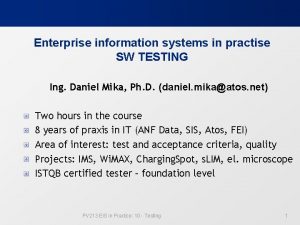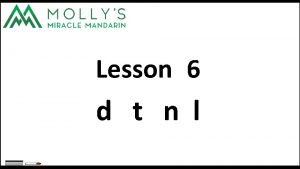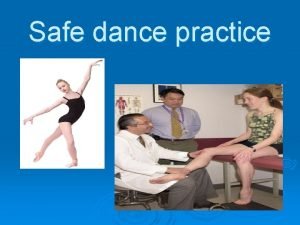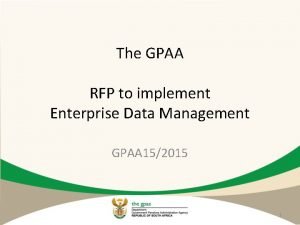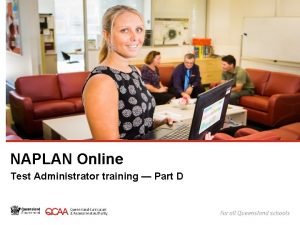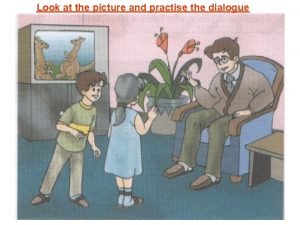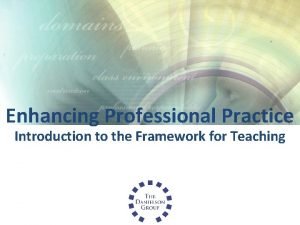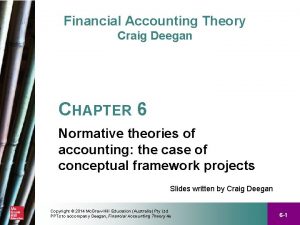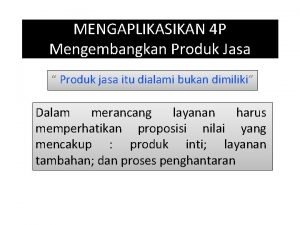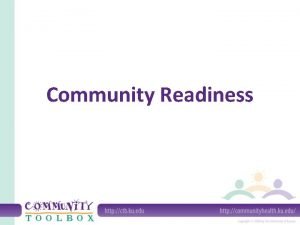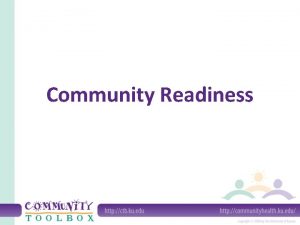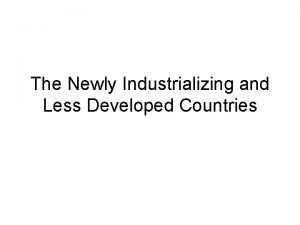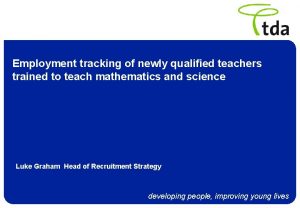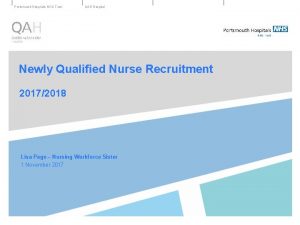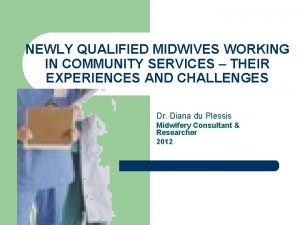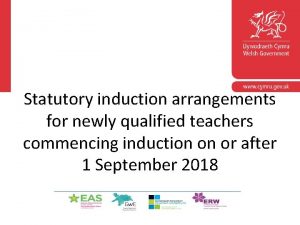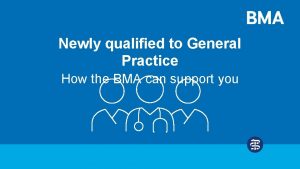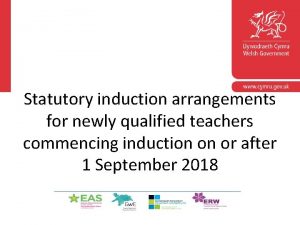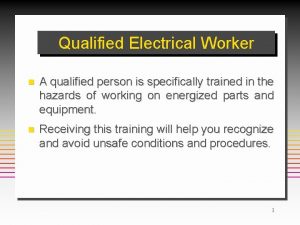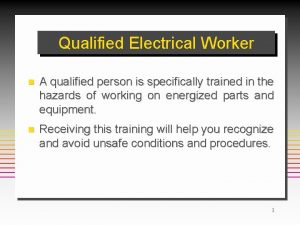Enhancing the Readiness to Practise of Newly Qualified


















- Slides: 18

Enhancing the Readiness to Practise of Newly Qualified Social Workers (NQSWs) Neil Ballantyne & Jane Maidment

The project background “Child Youth and Family reports that many new graduates they employ lack the required level of knowledge of child protection, youth justice, child development, mental health, addictions and family violence. This means new social workers need to learn these skills on the job. ” Children’s Commissioner (2015, p. 34)

Research questions PHASE 1 | 2016: What is the content of the current Aotearoa New Zealand social work curriculum and how does it relate to the SWRB core competencies? PHASE 2 | 2017: How well prepared are NQSWs to enter professional social work practice and how is their learning being supported and enhanced in the workplace? PHASE 3 | 2018: What professional capabilities, including cultural capabilities, should we expect of NQSWs and of social workers working at more experienced and expert levels of practice?

PHASE ONE | 2016: The curriculum content Analyse curriculum documents The Declared Curriculum Student focus groups The Taught Curriculum Educator focus group The Learned Curriculum

Metadata about core curriculum dataset Metadata about the core dataset Participating tertiary institutions Polytechnics / Private Training Institutes Universities th Participating SWRB-recognised social work programmes Bachelor’s degrees Bachelor’s Honours degrees Master’s degrees Course descriptors obtained for analysis Compulsory courses Elective courses NZQF level 5 courses (1 st year) NZQF level 6 courses (2 nd year) NZQF level 7 courses (3 rd & 4 th year) NZQF level 8 courses (Honours) NZQF level 9 courses (Master’s) Courses with a value between 15 to 20 credits / points Courses with a value between 30 to 45 credits / points Courses with a value between 60 to 90 credits / points Totals 14 9 5 19 14 2 3 402 353 49 117 101 148 12 32 328 70 4 [1] ‘Elective’ includes courses within the same programme that are core fo [2] Three level 7 (4 [3] Five level 8 (Honours) courses are also taught as level 9 (Masters) co [4] Five level 8 (Honours) courses are also taught as level 9 (Masters) co

Creating the curriculum maps Taxonomy Terms (N=600) Curriculum Documents (N=402) SWRB Core Competencies (N=10) e. R 2 P Database






Taught & Learned Curriculum PARTICIPANTS Focus groups with educators: 8 tertiary institutions 24 educator participants Focus groups with students: 8 tertiary institutions 34 student participants

Educators: Perceived graduate readiness to practise I guess readiness is only defined by the situation that you are presented with isn’t it. I mean a lot of them will say no they are not ready because they don’t feel ready they are not confident and I guess for us to encourage them to be confident and to be open to learning and to be critical are really and the rest will just come with good supervision and support. I just think we need to, as programmes, emphasise that when our students graduate that they do graduate at that beginning level and we don’t expect them to graduate as experts; like we don’t expect doctors or lawyers or psychologists. But there does seem to be this expectation from some people, mainly the government, that our social workers graduate and are ready to do top level complex work, and that is just bloody ridiculous quite frankly.

Learners: Perceived readiness to practise I feel as well prepared as I can I guess. It’s always nerve racking doing these things after studying it for four years. I guess I always doubt myself but I just have to take on the feedback from my placement supervisor and be more confident within myself. I think I have the knowledge and skills to practice because the degree has really prepared me in that way. …the government or the agencies that were expecting that we’re going to know, they’re expecting that we’re going to know everything. . you know social work has got so many diverse fields that we can’t know everything in a particular field. . we keep on learning when we start work… it’s like there seems to be all of that negative stuff in the media that they’re expecting us to be specialists straight away. .

PHASE TWO | 2017 : NQSWs, Managers and Service Users The survey is a modified replication of a UK study by the Social Care Workforce Research Unit, Kings College, London (Sharpe et al, 2011) Survey of NQSWs (N=145) Survey of Manager/Supervisors (N=180) Individual interviews NQSWs (N=20) Individual interviews Managers/Supervisors (N=20) Service user focus groups (N=3)

Managers’ ratings of Newly Qualified Social Workers’ knowledge (NZ, 2017) Their legal powers as social workers 14. 0 The SWRB Code of Practice 17. 3 Social work organisations – functions, responsibilities and structures 17. 6 The ANZASW Code of Ethics 18. 3 Evidence-based practice 18. 3 Availability of specific local services, resources, etc. , for service users and carers Underpinning theories about social problems and disadvantage Excellent 56. 7 63. 3 19. 3 69. 3 59. 5 56. 9 20. 9 Disappointing 13. 1 22. 3 24. 8 59. 5 24. 5 Adequate 29. 3 57. 6 19. 6 17. 9

Managers’ ratings of Newly Qualified Social Workers’ knowledge: (NZ, 2017 & UK, 2009) 17. 9 18. 2 11. 1 13. 1 19. 6 33. 0 24. 8 22. 3 29. 5 56. 7 58. 5 12. 7 14. 0 12. 5 UK NZ UK 30. 9 44. 0 57. 6 57. 5 69. 3 59. 5 56. 9 76. 2 63. 5 60. 4 54. 0 24. 5 23. 8 20. 9 18. 3 7. 2 NZ UK 5. 6 NZ 18. 3 17. 6 UK NZ 1. 6 UK NZ pinning theories about social problems and disadvantage Availability of specific local services, resources, etc. , for service users and carers Evidence-based practice Social work organisations – functions, responsibilities and structures Codes of Practice Their legal powers as social workers Excellent Adequate Disappointing

PHASE THREE | 2018: Co-produce a PCF Write literature scan on professional capabilities frameworks (PCF) Conduct online card sort on key capabilities Convene five workshops with stakeholders to coproduce a professional capabilities framework Launch the professional capabilities frameworks
 Induction for newly qualified teachers
Induction for newly qualified teachers Practise verb form
Practise verb form Practise ing hali
Practise ing hali Dtnl
Dtnl Safe dance practice
Safe dance practice Rfp best practise
Rfp best practise Practise ving
Practise ving Presentation, practice production
Presentation, practice production Assessform edu au
Assessform edu au Look at the pictures and listen to two dialogues
Look at the pictures and listen to two dialogues Charlotte danielson framework
Charlotte danielson framework Enhancing decision making
Enhancing decision making Explain property enhancing operations
Explain property enhancing operations Enhancing personal effectiveness
Enhancing personal effectiveness History of performance enhancing drugs
History of performance enhancing drugs Enhancing thermal conductivity of fluids with nanoparticles
Enhancing thermal conductivity of fluids with nanoparticles Four enhancing qualitative characteristics
Four enhancing qualitative characteristics Text box formatting
Text box formatting Enhancing supplementary services
Enhancing supplementary services


